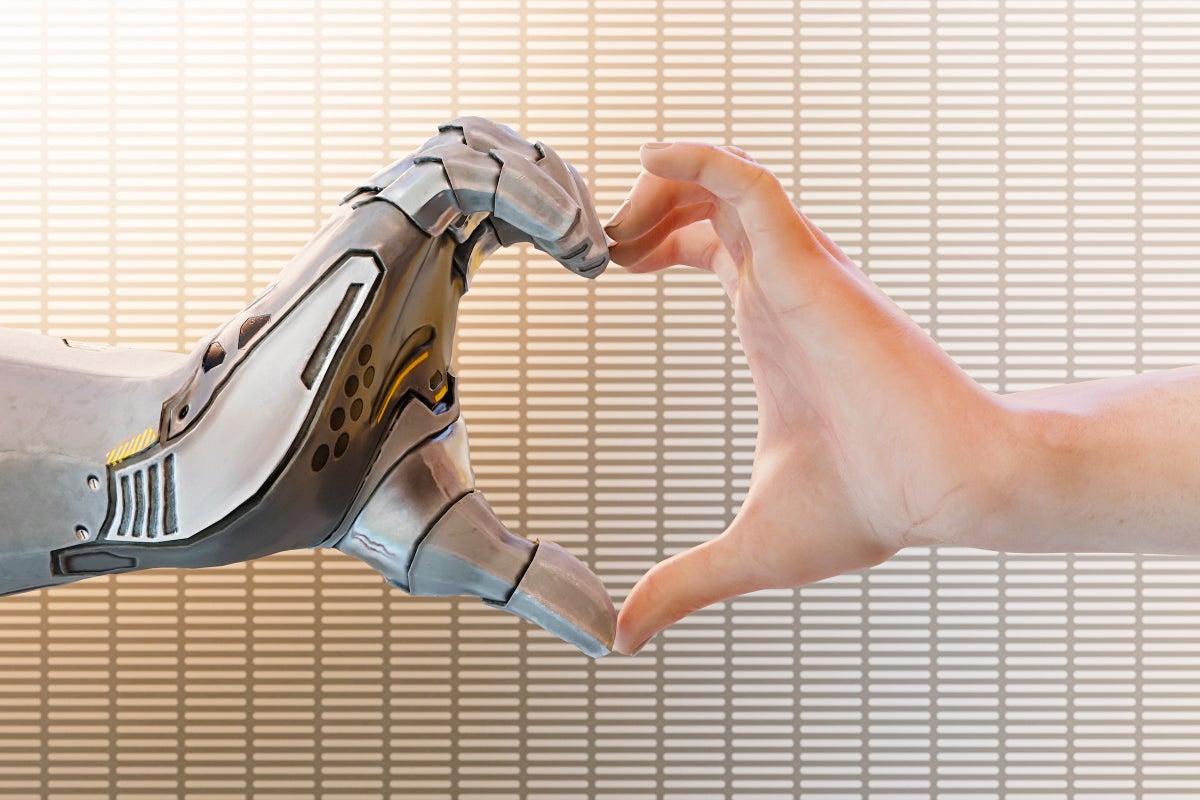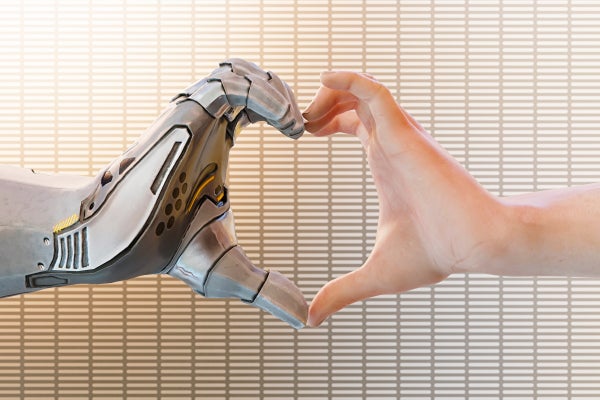My friend is a chair of a charity scholarship board and they had to exclude use of AI in scholarship application because it was giving fake and poor responses.
She was also talking to a guy who wrote her a love poem or some ish, claiming it was from the heart. She ran that ish through a reverse AI software or whatever and it said a majority of it was written by AI. Needless to say they didn't talk much longer lol
Lot of trash users
I read a article a while back about people using chatgpt for dating apps but not having any charisma when they meet up for the first date. this isn't the article below but it talks about it.
Forget fake profile pics on dating apps—AI is now doing the talking, and we can’t tell the difference

www.scientificamerican.com
this isn't the article
October 23, 2025
4 min read
So You Fell for a Robot—‘Chatfishing’ Is Taking Over the Dating Apps
Forget fake profile pics on dating apps—AI is now doing the talking, and we can’t tell the difference
By
Deni Ellis Béchard edited by
Andrea Gawrylewski &
Clara Moskowitz
Donald Iain Smith/Getty Images
It’s a well-worn adage of the Internet age: people often aren’t what they seem to be online. But until recently, you could at least be assured that they were people. Now, though, “chatfishing,” a new wave of online deception, is taking over
dating apps. Instead of “catfishing”—using an entirely
fake identity—people are using artificial intelligence to help them chat up prospective love interests and secure dates.
And tech to help them do it is on the rise. People on dating apps may copy and paste their prospective date’s messages into chatbots such as ChatGPT or give it screenshots of text conversations, seeking advice. “Wingman apps” such as Rizz, Winggg and YourMove AI suggest responses to uploaded screenshots of incoming messages; the marketing for YourMove AI claims that it “puts your texting on cruise control.” Some dating platforms are also adopting AI coaching.
Hinge uses an AI-powered tool to encourage users to give better answers to its prompts without generating a script, and Facebook Dating is testing a “dating assistant” to brainstorm dating ideas. Volar, a dating app that launched in late 2023, even let people train an AI version of themselves that flirted with someone else’s AI as a pre‑date screening, like two emissaries handling the small talk before the generals sit down. (Volar shuttered in 2024, suggesting that humans still want some level of involvement in their dating choices.)
A
recent survey by Match and researchers at the Kinsey Institute found that 26 percent of U.S. singles said they use AI to enhance dating—a 333 percent jump from the year before. A
2025 study from Norton supports this: six in 10 people who use dating apps believe they’ve encountered at least one conversation written by AI. And
Time reported that the Rizz app drew roughly 1.5 million monthly active users last year.
Many dating app users report matching with people who were engaging while texting but boring in person, yet no studies exist that show whether chatfishers get more dates. The science, however, suggests people struggle to distinguish between human- and machine-written text. In
a 2024 study, humans were only about 57 percent accurate in determining whether news article snippets were written by humans or AI, and a
2025 preprint paper showed that human judges who simultaneously chatted with OpenAI’s model GPT-4.5 and a human mistook the AI for a human 73 percent of the time.
Even outside of a dating context, AI often ends up successfully seducing people: An
MIT Media Lab analysis of a fast‑growing Reddit community called r/MyBoyfriendIsAI found that romantic attachment is often unintentional when using chatbots. People come for practical help, such as writing assistance or problem-solving, and stay for companionship. Soon there are
pet names, goodnight texts and then grief when the model updates and the chatbot’s personality drifts.
A human-machine romance may be off-putting but shouldn’t be surprising. ChatGPT was, as its name suggests, designed for chatting, and ample research shows that humans bond through communication. But if connection is so fundamentally human, why do we need the help of machines?
The answer is that with dating apps we’re on computer turf—it’s not our home field. We evolved to speak in person, with gestures, facial expressions, body language and eye contact all helping others complete the half-finished thoughts we sometimes utter. Dating apps (and all chatbot conversations, really) favor machines not just because the apps reduce our embodied lives to text but also because, for the past half-century, computers have been optimized to sound as flawlessly human as possible.
The classic test of computer intelligence—proposed by British computer pioneer Alan Turing in 1950—looks a lot like a dating chat. In the
Turing test, a judge communicates by text with two unseen interlocutors—one human, one machine—and tries to tell them apart. If the judge can’t, the machine “passes.” Year after year, engineers have competed to create chatbots capable of passing. Only in
2024 did models begin
outperforming humans, and by 2025, as previously mentioned, ChatGPT was fooling judges more than 70 percent of the time.
And the deeper twist is that, for decades, even when the machines failed, humans often did, too—coming across as mechanical, rehearsed or generic. Now, on dating apps, Turing tests are playing out in real time. A woman messages two matches; one drafts replies while the other lets a bot handle the exchange. If she arranges a date with the AI, that system just passed.
Author
Brian Christian explored this irony in his 2011 book
The Most Human Human, which chronicled his experience competing against chatbots in Turing tests. His advice to stand out as decidedly human was to be gloriously embodied. Don’t say you like music; say you cried when you heard the second verse. Don’t say you love dogs; describe your childhood Doberman that slept in the hammock for fear of the Roomba. “The statistical, cultural, ritual regularities of human interaction are the weaknesses that these machines exploit,” he wrote.
Though modern life, with its endless messaging, favors the machines, asking for their help isn’t a road to finding love. As studies and stories from the dating trenches show, our romantic interests may fall for the
AI but not for us. The solution may be in letting go of saying the right things and just being real—giving and looking for what is true, flawed and
unmistakably human.
....putting out complete bs






www.scientificamerican.com




